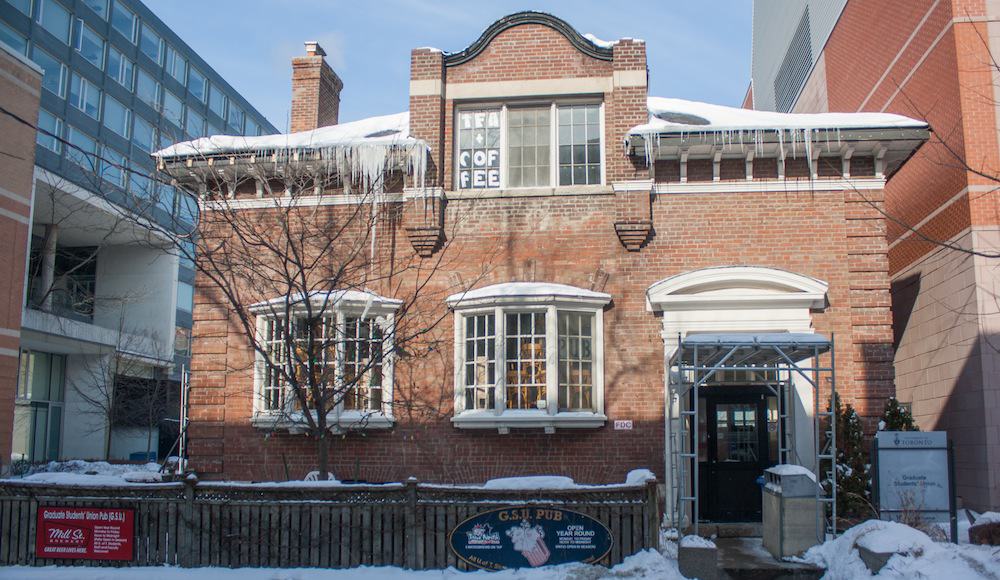After twice extending the nomination period, campaigning has officially started for the University of Toronto’s Graduate Students’ Union (GSU) election.
After the initial nomination period closed on January 24, the positions of External, Academic and Funding (Divisions 1 and 2), and Finance and University Governance Commissioners had no candidates. After one week, there was still no candidate for the Academic and Funding Commissioner, reopening the nomination period.
Of the six positions up for grabs, four have a single candidate. However, in the case of single candidates, the GSU mandates a vote of confidence, similar to the University of Toronto Students’ Union (UTSU) procedure on elections. Unlike UTSU elections though, GSU candidates cannot run in slates.
To mark the start of the campaign, The Varsity reached out to all the candidates to discuss their platforms and the issues, including defederation from the Canadian Federation of Students (CFS).
Academic and Funding Commissioners primarily address academic issues with faculty and students within their field of study. In Divisions 1 and 2, which focus on humanities and social sciences, Walter Callaghan is the sole candidate. As of press time, Callaghan has not responded to requests for comment, nor had he posted a candidate’s statement on the GSU website — as most other candidates have. Michael Jones and Hussain Masoom — both PhD students in chemistry — are the two candidates for Divisions 3 and 4, which address physical and life sciences
Both Jones and Masoom listed graduate stipends as an important problem facing graduate students. “Instead of the university paying more to make up for the minimum, they’re just getting more work,” said Jones. Masoom also called on the university “to take steps to realize the importance of graduate students on campus” to improve the graduate student experience.
Jones also listed other goals he would like to accomplish, including “[making] the processes around fees and university bureaucracy more accessible and more streamlined for the graduate student populace, and [engaging] the physical and life sciences more when it comes to student governance.”
Masoom offered a different set of priorities: “I will tackle the issue of timely graduation through shared accountability with the supervisor and student [to] ensure that graduate students can graduate within the given timelines of their degree. I also want to help institute more effective professional development for graduate students as faculty positions become scarcer.”
Civics and Environment Commissioners primarily address issues of civic engagement and environmental responsibility. Susanne Waldorf, a PhD student in sociology of education, is running unopposed. She is also the sole candidate running for reelection. If elected, Waldorf hopes to continue the work she started this year.
“I think public transit in Toronto is a key graduate student issue, and I will continue to engage with community organizations which are working for better and cheaper public transit in Toronto,” Waldorf said. “I will also continue advocating for better housing in the area of the university and on campus for graduate students.” She also hopes to accomplish her goal of getting a shuttle bus between the St. George and Scarborough campuses.
Waldorf also addressed the issue of GSU defederation from the Canadian Federation of Students. “I believe it is important that students decide whether or not to continue our membership with the CFS,” Waldorf said. “I hope to see the CFS disaffiliation referendum happen this year, but if the referendum doesn’t happen in March, I will continue to pressure CFS to hold true to their bylaw and organize a referendum.”
The Finance and University Governance Commissioner primarily communicates with University administration and student representatives on financial issues, and oversees audits. Soaleha Shams — a PhD student in Cell and Systems Biology at the University of Toronto Mississauga — is the sole candidate. Although Shams did not respond to The Varsity’s request for an interview, her platform focuses on lowering tuition and increasing funding for graduate students.
The External Commissioner oversees lobbying efforts and implements campaigns for organizations with which the GSU is involved. The candidates are Leah Bender and Bethel Woldemichael.
Woldemichael’s platform addresses mental health. “One of the biggest issues facing graduate students today is the lack of awareness on students’ mental health,” Woldemichael noted.
Woldemichael also addressed the CFS: “I plan to take direction once all graduate students’ voices have been heard… the best decision made will be birthed out of what graduate students would like to happen.”
Bender’s platform addresses tuition fees and mental health. “Two issues I hope to address if elected are reducing tuition and fees for PhD students who have finished their coursework and comprehensive examinations, and increasing support and resources for all graduate students with mental illnesses or in any time of great emotional need,” Benderl said.
Bender also addressed the CFS: “While the move to defederate is certainly a bold one, it is not imprudent, as there are very few benefits to be gained through continued affliction.”
The internal commissioner primarily liaises with course unions. Nickie Van Lier, a Master’s of Education student at the Ontario Institute for Studies in Education, is running unopposed.
“I want to make sure that student groups on all three campuses are not only aware of issues being taken up by the GSU, but also that they have a way to ensure their ideas and concerns are being heard at the highest level of student representation,” Van Lier said, adding: “To that end, I will be open to meeting regularly with student groups to increase GSU visibility.”
The GSU’s All-Candidates Debate is on Thursday, February 13 at University College room 161, from 4:00–6:00 p.m. Voting takes place from February 25 to February 27.


